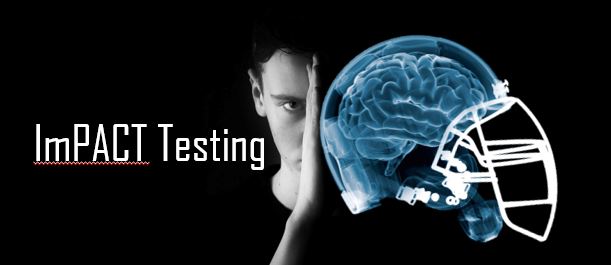ImPACT Testing: An Effective Computer-Based Tool for Athlete Concussion Management

Summer is here, complete with outdoor events, sports, and recreational vehicles. Alongside the fun though, emergency departments across the nation anticipate a spike in all kinds of summer and sports-related injuries, including concussions. A concussion is a form of traumatic brain injury.
According to the Center for Disease Control (CDC), as many as 3.8 million sports and or recreation-related concussions occur in the US each year. Over 2.4 million are expected to occur in children 5-18 years of age. The symptoms caused by concussions can last for days, weeks, or even years, making proper diagnosis and concussion management even more critical.
ImPACT: State of the Art Concussion Evaluation
Fortunately, concussion management has received a lot of attention in the last few years. This has led to the evolution of advanced treatment tools such as the King-Devick Concussion Testing and the ImPACT testing system. Concussions can be difficult to track, often leaving coaches and physicians agonizing over when it is okay for the athlete to resume playing safely. ImPACT, a sophisticated computer-based cognitive testing program was developed to improve management of concussions.
How ImPACT Testing Works
The ImPACT system records the athlete’s medical history and then tests the athlete’s mental acuity using a variety of puzzles and cognitive tasks. Testing is simple and usually requires only 20 minutes to complete.
Each section generates a personalized baseline of mental acuities such as visual memory, brain processing speeds, attention span, reasoning, reaction time and more. Prior to the start of the season, athletes are individually tested to create an objective baseline of their overall brain function. Once their neurocognitive function is known, it can be used to objectively evaluate their symptoms following a head injury on the field.
What if the Athlete has Not Been Tested Prior to a Concussion?
Because the program is research-based, it also provides a normative database based on testing thousands of non-injured players. This can be used for comparison, even if the athlete did not undergo baseline testing. If a concussion is suspected, the athlete in question can be tested at various stages to evaluate and track any cognitive changes which may have occurred.
Symptoms of a Possible Concussion
- Trouble remembering or thinking (especially the events which led up to the possible concussion)
- Brain fog and confusion or other signs of cognitive changes
- Dizziness
- Nausea or vomiting
- Changes in sleep patterns such as insomnia or sleeping more than usual
- Headaches that get worse or won’t go away
- Sensitivity to light or noises
- Slurred speech or difficulty moving
- Emotional changes such as nervousness, sadness, or anxiety
If your child gets a bump on the head or you are concerned that a concussion has occurred, seek immediate medical attention. The early signs and symptoms can be vague. Someone with a concussion can look fine, even though they may be acting differently. When in doubt, always seek proper medical care.
If you would like to know more about traumatic head injuries, concussions, or our advanced orthopedic care for athletes and non-athletes of all ages, please call Lemak Health at 205-397-5200. You can also email us at info@lemakhealth.com
